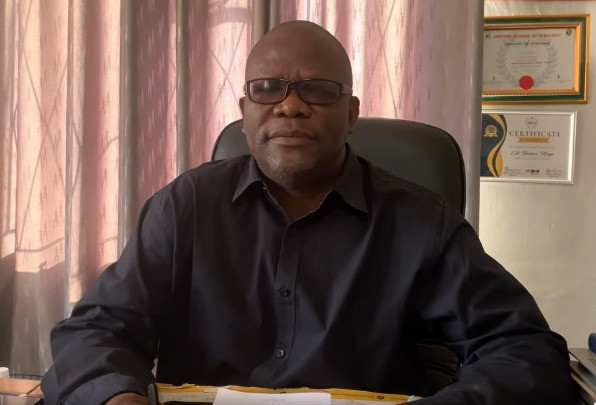
THE International Fund for Agricultural Development (IFAD) through partnership with the government, the OPEC Fund for International Development and farmers recently completed the implementation of the Smallholder Irrigation Revitalisation Programme (SIRP), which rehabilitated 5 200 hectares of communal irrigation schemes in Manicaland, Midlands, Masvingo and Matabeleland South provinces.
IFAD country director for Zimbabwe, South Africa and Namibia and for the multi country office in southern Africa, Francesco Rispoli, revealed this in a speech read on her behalf by Joylyn Ndoro, the country consultant liaison, Zimbabwe, during the World Food Day celebrations held at the Matopos Research Institute in Matabeleland South province on Thursday.
The World Food Day celebrations, that coincided with the Food and Agriculture Organisation of the United Nations’ 80th anniversary, were held under the theme Hand in Hand for Better Foods and Better Future.
Rispoli said in Matabeleland South, the impact of the intervention is evident in communal irrigation schemes such as Valley, Silalabuhwa, Makwe, Guyu, Sebasa, Rustlers Gorge, Tshikwalakwala and Bambanani.
He said through the SIRP intervention, a total of 35 000 smallholder farmers were reached, with women accounting for 50% of beneficiaries and youth for 30%.
“This aligns with our values, which are shared by the Government of Zimbabwe and emphasise the inclusion of women, youth, and persons with disabilities, who are often overlooked,” Rispoli said.
“In partnership with the Government of Zimbabwe, IFAD is currently supporting the Smallholder Agriculture Cluster Project (SACP) which ends in 2027.
“The project is reaching out to smallholder farmers in Mashonaland East, Mashonaland West, Mashonaland Central, Matabeleland North and Midlands provinces.”
- COP27: Taking stock of progress
- Parliament ratifies Opec Fund loan to Zimbabwe of US$15 million
- Senate approves US$15m fund for smallholder farmers
- What Zim, resource-rich nations can learn from Opec
Keep Reading
He said SACP is organising smallholder farmers into well-governed, well-functioning and cohesive agriculture producer groups and clusters to promote their participation in profitable value chains and connecting them to markets.
“In this regard, 800 agriculture producer groups are being linked to 200 small and medium enterprises and 40 Value Chain Lead Enterprises to promote viable, market led production,” Rispoli said.
“The development of climate smart infrastructure remains a priority and under SACP we are developing and climate proofing 1 780 hectares that are being brought under irrigation, establishing 100 village business units and rehabilitating 89km of last mile feeder roads.”
He said through this intervention, they are reaching out to 78 200 households.
“We have just launched a third project, which is also a partnership between the government of Zimbabwe, IFAD and OFID, the Horticulture Enterprise Enhancement Project (HEEP) with a total investment of US$66,55 million,” he said.
Rispoli said HEEP aims to increase incomes, food security and empowerment of smallholder farmers engaged in profitable, sustainable horticulture value chains.
He said like its sister project, SACP, the project also emphasises the participation of women and youth, while also focusing on nutrition, climate change, and environment.
"More importantly, HEEP is promoting a Public-Private-Producer Partnerships model, which aims to broker mutually beneficial partnerships between the public sector, the private sector and smallholder producers, with the objective of driving inclusive horticulture value chain development,” he said.
“HEEP will also leverage previous investments like the SIRP and SACP.
“HEEP’s interventions will be rolled out in 20 districts across Matabeleland South, Manicaland, Masvingo and Midlands provinces, with partnerships with the private sector extended nationally.”
Rispoli said the project will also establish 620 village business units and will benefit 71 000 households directly.
He said these projects are already contributing to the transformation agenda by building resilience, improving productivity and fostering inclusive growth.









